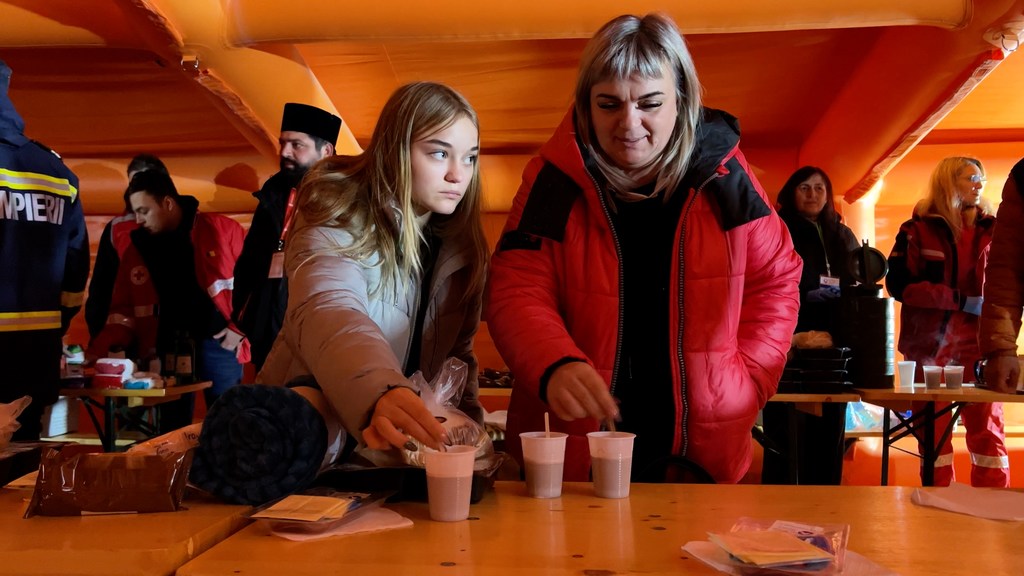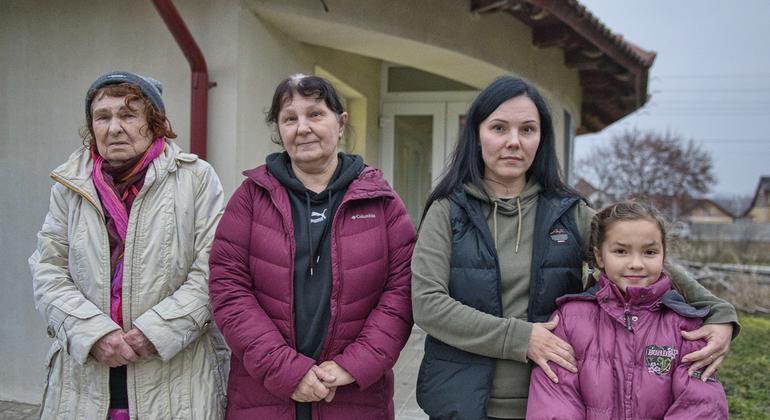“When we first came here in late February, immediately after the particular Russian invasion, there was total chaos on the border, ” remembers Lars Johan Lonnback, IOM’s Chief of Mission in Moldova. “It had been immediately clear to us that, along with food, shelter, medical care and counselling, transport was a massive need. Well-meaning volunteers were arriving, offering to take vulnerable families – who, you have to remember, remaining their men behind to fight – to England, Norway, Italy. It was totally unorganized and a dream situation for human traffickers, who else always turn up when people are in their most vulnerable. ” “The essential thing is that the international community continues to help Moldova in any way it can, ” he says. “We’ve seen that the Ukrainians are proud plus resilient, and they really don’t want to leave their homes. But , as the attacks upon infrastructure mount, and as the particular snow piles up, it gets more and more difficult to reside , to simply exist. We have established a system that is versatile and responsive, and we may scale up in the event of many people once again fleeing Ukraine. ” Victor Lacken/Lensman. eu

Leaving Ukraine along with the mothers, young children plus grandmothers, are old men. Yurii, 73, vividly remembers their parents talking about the Second Globe War, and never thought that he would see such death and destruction in his homeland. “It’s horrible, ” he says. “Every day we have victims getting brought in. Every day. There are so many sufferers, so much grief, so many people struggling. ”
Bussed to Bucharest
Tucked away within the southeastern corner of Europe, Moldova’s winters may be boring and harsh, but the street from Ukraine’s border spools out through bare, brownish hills like a ribbon of hope. Within the same vein, IOM has been helping people, particularly the many needy – including persons with disabilities, the elderly and those who are bedridden – to get at European Union countries by aircraft. To date, more than 15, 500 people have entered the European Union simply by bus and plane along with IOM support, which Lonnback believes has helped in order to stave off a difficult situation in Moldova, a country currently wracked by poverty plus social tensions. In this cold, miserable field, her own smile is a beam associated with sunlight. When Larysa got off a bus from the border to the International Company for Migration ( IOM ) train station outside the small town associated with Palanca, she left behind the Donetsk region, having made a 2, 000-kilometre, three-day journey with her ill daughter.

Four generations uprooted
Victor Lacken/Lensman. european union “I want this war to end so I can enjoy being a mother to the fullest, ” says Ksenia. “I think I would have gone crazy with this particular war without Ivan. He’s the one who brightened upward all the horror. ” Larysa and her daughter are two of a few dozen people seated around a tent staffed by IOM and other agencies. Prior to the bus leaves for a 10-hour-long trek to the Romanian capital, there is time for a very hot meal, a health check-up, to get information needed for the coming days and weeks and even a shower. Moldova offers welcomed them warmly, she says, with humanitarian aid and simple kindness. She and her daughter are usually learning Romanian so they can compete on the local job market and use their skills for that benefit of their host country and themselves. Much as they appreciate the aid they have been given, they don’t want to survive on it. “It’s sustainability by means of solidarity, ” says Margo Baars, IOM’s Emergency Planner in Moldova, describing the organization’s approach. “We provide livelihood support, grants designed for small businesses, training and transitional shelter support, particularly to get people through this tough winter. One of the main things we do is psychological support, because people have been through a lot and need more than just material aid. ” Larysa Kirilenko from Donetsk and her daughter take a snack on at a waystation en route to Bucharest. Five-month-old Ivan, developed in peace and delivered into war in Ukraine, is now safe in Moldova with his mother Ksenia. Whilst heavily pregnant, Ksenia experienced run through a minefield because cluster bombs rained down. She fell, but steered clear of, with a birthmark on Ivan remaining as a memory of the day they had both cheated dying. It was also abundantly clear to Lonnback that the thousands of people coming across the border would place a huge strain on Moldova’s scarce resources, risking a interpersonal crisis. IOM, partnering with the Moldovan authorities and the EL Refugee Agency ( UNHCR ), assessed the needs and worked towards finding solutions. The companions quickly established a dedicated bus service that decongested the particular border area, protected the particular vulnerable, and added the raft of services to the massive relief effort.